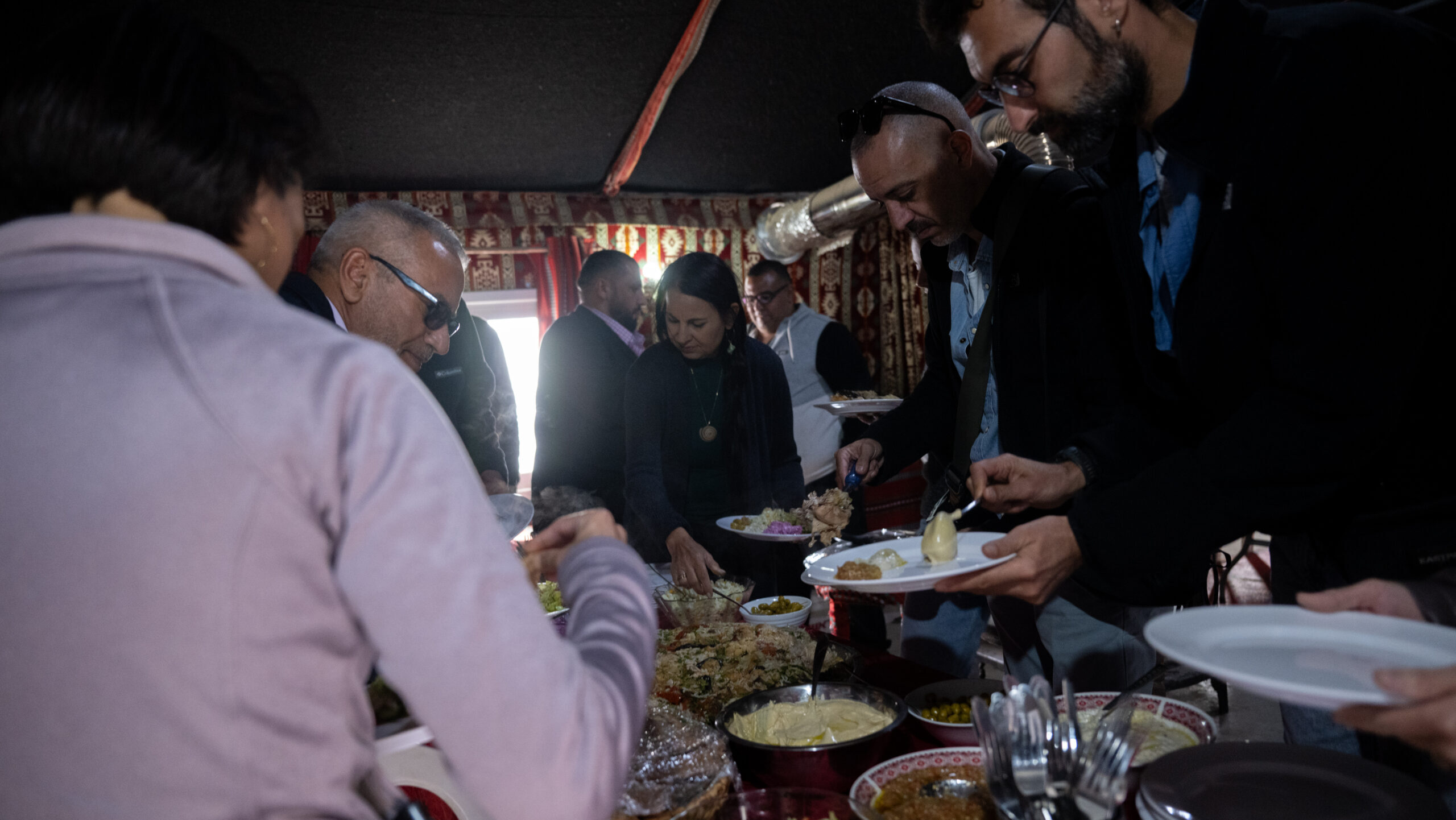Israeli Arab Citizens Grapple With Impact of Israel-Hamas War
Israeli-Arab poll suggests 85% believe Arab citizens will help Jewish citizens who suffered causalities in the October 7 attack
The Konrad Adenauer Program for Jewish-Arab Cooperation (KAP) at the Moshe Dayan Center, Tel Aviv University, surveyed 502 Arab Israelis aged 18 and above to assess the repercussions of the October 7 attack on Jewish-Arab relations in Israel.
Three primary issues were addressed regarding the subject: the war narrative, Jewish-Arab relations, and the political agenda.
“The organizing logic behind this presentation of topics is that they are organized on the axis between the immediate level of what was going on October 7 and its implications, and going through the strategic or daily level, which has to do with the general political agenda of the Arab public,” explained Arik Rudnitzky, KPA’s project manager.
The poll was conducted through a series of phone calls from November 12 to November 16, involving 502 participants aged 18 and above. All participants were Arab citizens of Israel and provided insights on a number of topics.
Rudnitzky highlights that within the war narrative, participants were queried about the reasons behind the attacks that took place on October 7. These inquiries delve into whether the events contribute to the Palestinian cause, the reactions of the Arab population to Hamas’s attacks, and whether they consider Israel’s response justified or not.
“The opinions in the Arab public are divided. We see that a large part say that both sides (Israel and Hamas) are to be blamed or responsible for the outbreak of the war.”
“We found out that among the Negev Bedouins, there was a significantly higher rate, approximately 30%, that put the blame on Hamas, while residents in the northern part of the country or the triangle, which is the central district, put more of the blame on Israel,” Rudnitzky stated.
KAP stands as a cornerstone initiative within KAS (Konrad-Adenauer-Stiftung) Israel’s extensive collaboration, marking one of their enduring partnerships. Launched in 2004 by the foundation and Tel Aviv University as an integral component of the Moshe Dayan Centre for Middle Eastern and African Studies, KAP is dedicated to enhancing insights into Jewish-Arab relations in Israel. It achieves this through a spectrum of activities, including conferences, public lectures, workshops for key stakeholders, as well as comprehensive research, studies, publication, and documentation efforts.
The war narrative also explored the question of whether Israel’s response to Hamas’s attack was justified. According to the findings, 44% of participants believed it was not justified, while 47% felt that it was. Rudnitzky emphasized the importance of the phrasing of the question:
“The wording of the question is very important. We asked them to relate to the Israeli response on what Hamas did on October 7. We did not ask them to relate to the Israeli Defence Forces conduct in Gaza, which I believe we would have guessed or received totally different views.”
The second narrative highlighted in the lecture explored the impact of the war on Jewish-Arab relations. Rudnitzky queried participants about their agreement with the assertion that some Arab citizens assisted those under attack in the Western Negev on October 7.
“We found out an overwhelming majority of approximately 85% who say that their opinion is positive about that, that Arab citizens will help Jewish citizens that suffered casualties in these events.”
However, a more significant concern emerged regarding the potential decrease in solidarity between Jews and Arabs after the war.
The poll results revealed that 70% of participating Arabs believed that the bond between the two communities has weakened since the events. Additionally, over 59% of respondents expressed fear of harassment by the Jewish population after the war.
“We see that among residents, Arab residents of the mixed cities, most of them, a large majority, think that the solidarity has only weakened,” Rudnitzky noted.
In the lecture, Rudnitzky explored the political implications, questioning participants about the potential fate of the Israeli government post-ceasefire. The data revealed that 60% anticipate government corruption, while 66% support the inclusion of an Arab party in the coalition.
“We found out that almost two-thirds of the Arab public say that they have a positive opinion about an Arab party joining the government coalition, while approximately 27% say that they do not approve such a scenario.”
“However, on the side of those who oppose such a scenario, we see that the level of opposition has slightly but significantly, in terms of statistical or research study, decreased,” he continued.
The study not only provides valuable insights into the immediate aftermath of the conflict but also emphasizes the need for continued examination of these complex dynamics in the ongoing pursuit of understanding and fostering Jewish-Arab cooperation in Israel.
Meanwhile, 57% of Gazans polled believe Hamas was correct in launching the assault, while approval amongst those in the West Bank sit at 82%. Only 10% of those surveyed believe that Hamas committed war crimes during the raid, despite extensive video evidence and eyewitness testimony from survivors providing ample evidence of violations. These numbers show a staggering difference between Palestinians and Arabs in Israel.
Lana Ikelan is a recent graduate of the Hebrew University of Jerusalem and an intern in The Media Line’s Press and Policy Student Program.


